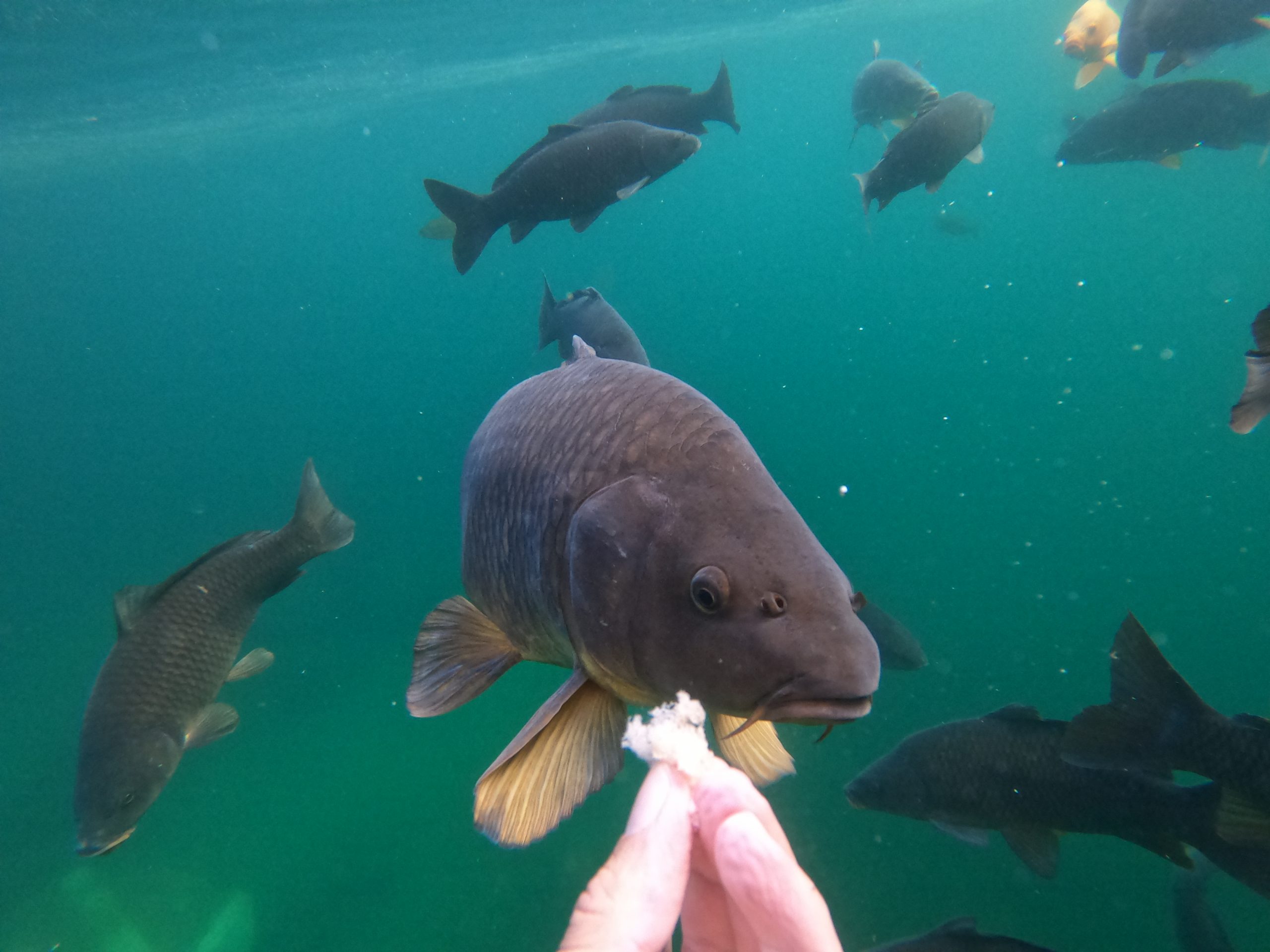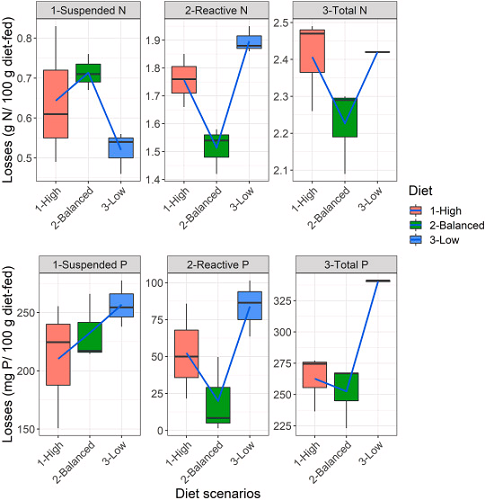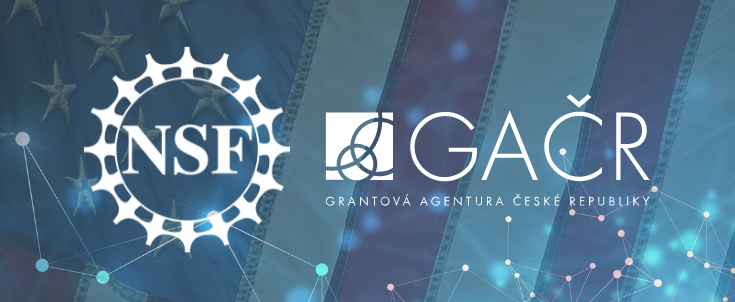
Thanks to a project supported by the GACR, Associate Professor Mraz’s research team is investigating how balanced fish nutrition can influence nutrient excretion and combat undesirable eutrophication in Central European carp ponds, thus helping to counteract negative environmental impacts.
Central European standing water bodies, the main part of them consisting of carp ponds, suffer from strong eutrophication (an excess of available nutrients, especially nitrogen and phosphorus). This eutrophication is often associated with the currently conducted feeding (farming) management in these fishponds, which does not consider the balanced nutritional needs of the growing fish. Our present study provides an understanding of how fish nutrition shapes nutrient excretion and eventually eutrophication. The study concludes that in spring and autumn, the status quo diets lead to inefficient resource use and indirectly to poor ecological conditions. Improved efficiency of ecosystem resource use and tackling eutrophication may be achieved by ‘bio-manipulating’ these fishponds towards a more balanced fish nutrition. The study calls for balanced pond feeds that optimize resource utilization efficiency and stimulate fish to better exploit natural food – in such a way that ecosystem services are maintained.
The authors feel future researchers could carry the baton forward with the novel understanding this article offers, especially the ecological management of these important pond ecosystems and the cleaner aquatic food production from the pondscapes of Central Europe.

A graphical summary of the presented concept. High = beginning of the vegetative season (lacking carbohydrate energy in ponds). Low = end of the vegetative season (lacking some indispensable amino acids in ponds). Balanced = short transition time (beginning-to-mid summer) when zooplankton-zoobenthos is sufficient and cereals are introduced in a pond. Suspended losses = losses through faeces (undigested nutrients). Reactive losses = losses through gills and urine (discarding of digested nutrients). Nutrient loading from fish stock to a pond ecosystem is at a minimum when the pond diet is balanced.
Detailed information is available in the original article: Roy, K., Vrba, J., Kajgrova, L. and Mraz, J., 2022. The concept of balanced fish nutrition in temperate European fishponds to tackle eutrophication. Journal of Cleaner Production 364: 132584. (Impact factor: 11.072, Article influence score: 1.376, IF/AIS quartile: Q1) https://doi.org/10.1016/j.jclepro.2022.132584
Written by: MSc. Koushik Roy, Ph.D., doc. Antonin Kouba, Ph.D. (Jihočeská univerzita v Českých Budějovicích, Fakulta rybářství a ochrany vod)
Cover photo courtesy: Ing. Tomas Kolarik (Jihočeská univerzita v Českých Budějovicích, Fakulta rybářství a ochrany vod)

As every year, GACR will announce the Standard Projects tender this year, which is aimed at all scientists. Other announced tenders will include International Projects, in which joint projects can be proposed by investigators from two or more countries, and the JUNIOR STAR and POSTDOC INDIVIDUAL FELLOWSHIP projects for scientists at the beginning of their career. EXPRO projects will not be announced this year and will make a return in 2024. Tenders will be announced roughly in the middle of February. The tender documentation of this year’s projects will only be changed slightly, meaning that scientists can already begin planning their projects.
Standard projects
Standard projects are the backbone of targeted aid for basic research in the Czech Republic, with GACR having financed hundreds of them each year since its founding in 1993. Through these projects, the best basic research in all areas is supported. Standard projects are usually worked on for three years and their proposals may be submitted by all researchers and their teams without limits on the length of their scientific careers. Project proposals are evaluated on the basis of a multi-level selection process.
JUNIOR STAR
The JUNIOR STAR tender is almost always met with great interest by applicants from the ranks of excellent scientists in basic research who are at the beginning of their career (up to 8 years after being awarded their Ph.D. titles) who have had their work published in prestigious international journals and have significant foreign experience. The goal of these five-year projects with a budget of up to 25 million CZK is to give the applicants a chance to gain scientific independence, including potentially founding their own research group to bring new topics into Czech science. Similarly to EXPRO projects, the review of JUNIOR STAR project proposals is carried out solely by external reviewers.
POSTDOC INDIVIDUAL FELLOWSHIP
For the third time, GACR is announcing the POSTDOC INDIVIDUAL FELLOWSHIP (PIF) tender this year. This type of grant is aimed at scientists who have finished their doctoral studies in the past four years. It can take two forms – either allowing a Czech scientist to carry out two years of research at a prestigious research centre abroad (with the condition of spending a third year at a research centre in the Czech Republic) or allowing a Czech postdoc or foreign scientist to come carry out research and begin their career at a Czech research centre.
International projects
Projects worked on by scientists and their teams in cooperation with researchers from partner states are a separate category of grant. In 2023, it will be possible to submit project proposals to GACR in cooperation with scientists from these states:
- Taiwan – National Science and Technology Council (NSTC)
- South Korea – National Research Foundation of Korea (NRF)
- São Paulo, Brasil– São Paulo Research Foundation (FAPESP)
- Austria – Austrian Science Fund (FWF)
- Germany – German Research Foundation (DFG)
- Poland – National Science Centre (NCN)
- Slovenia– Slovenian Research Agency (ARRS)
- Switzerland – Swiss National Science Foundation (SNSF)
- Luxembourg – Nation Research Fund (FNR)
- USA – National Science Foundation (NSF)
Tenders reviewed by GACR will be announced along with the other tenders halfway through February. The Lead Agency tenders reviewed abroad will be announced throughout the year. It is assumed that during this year, it will be possible to also submit project proposals together with Croatian scientists (Croatian Science Foundation – HRRZ).
In order to maintain the stability of the grant environment and the lowering of administrative intensity, GACR plans to only make small changes in repeatedly announced tenders. Therefore, you can use the tender documentation of previous years while preparing your project proposals.
To make sure that no tender has escaped your notice, we recommend you keep up to date of all currently announced tenders or sign up for the GACR newsletter (see the bottom part of this page).

The Czech Science Foundation (GACR) has successfully expanded its cooperation with the largest American grant agency, the National Science Foundation (NSF). Henceforth, scientists from both countries will be able to co-operate on scientific projects in the field of cybersecurity. It is expected that several million CZK a year will be expended in the support of this research topic.
“In the light of the state of current global security, cybersecurity is a key area which must be given attention. American scientists being willing to co-operate with their Czech peers in this field is a clear sign that the USA considers the Czech Republic a trustworthy partner,” said GACR President, prof. Petr Baldrian.
Since August 2021, Czech and American scientists have been able to request joint funding of scientific projects in the areas of artificial intelligence, nanotechnology, plasma sciences, astronomy and astrophysics. “The American agency chooses its partners very carefully. This scientific co-operation, the largest between our two states, was over two years in the making. We trust that in the future, we will successfully expand it to encompass other areas of research, not only cybersecurity,” said the GACR President.
The expenses of individual projects shall be shared between the agencies, with the Czech side of the project being financed by GACR and the American side by the NSF. It is expected that either side will support scientific projects in the area of cybersecurity with several million CZK each year.
About the Czech Science Foundation
The Czech Science Foundation (GACR) is the only institution in the Czech Republic which provides targeted support through public funding for basic research projects – in the current year, this support amounted to roughly 4.7 billion CZK. Through announced public calls, GACR finances the scientific projects of both erudite researchers and their teams and young scientists at the beginning of their career. Each year, GACR supports hundreds of research projects on the basis of a transparent multi-stage selection process.
About the National Science Foundation
The National Science Foundation is an independent government agency of the USA founded in 1950 which is responsible for the support of basic research. In 2023, it had a budget of roughly 9.9 billion USD and its grants were the source of funding for roughly 25% of university-led basic research in the United States. It supports around 11 000 projects per year via highly prestigious calls. NSF funding was integral to the creation of many revolutionary technologies – throughout its lifetime, it has supported the research of 258 scientists who went on to become Nobel Prize winners.



